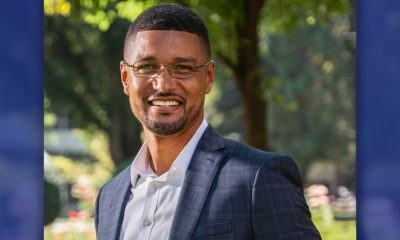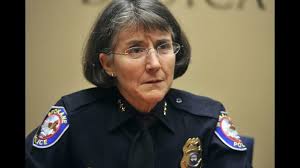Activism
Statewide “Listening Sessions” Allow Reparations Task Force to hear Black Californians Stories
The community listening sessions are being conducted across the state by the Reparations Task Force’s seven “anchor organizations.” The seven, Afrikan Black Coalition, Black Equity Collective, Black Equity Initiative, California Black Power Network, Coalition for a Just and Equitable California, Othering and Belonging Institute (University of California Berkeley) and Repaired Nations began conducting community gatherings in March.
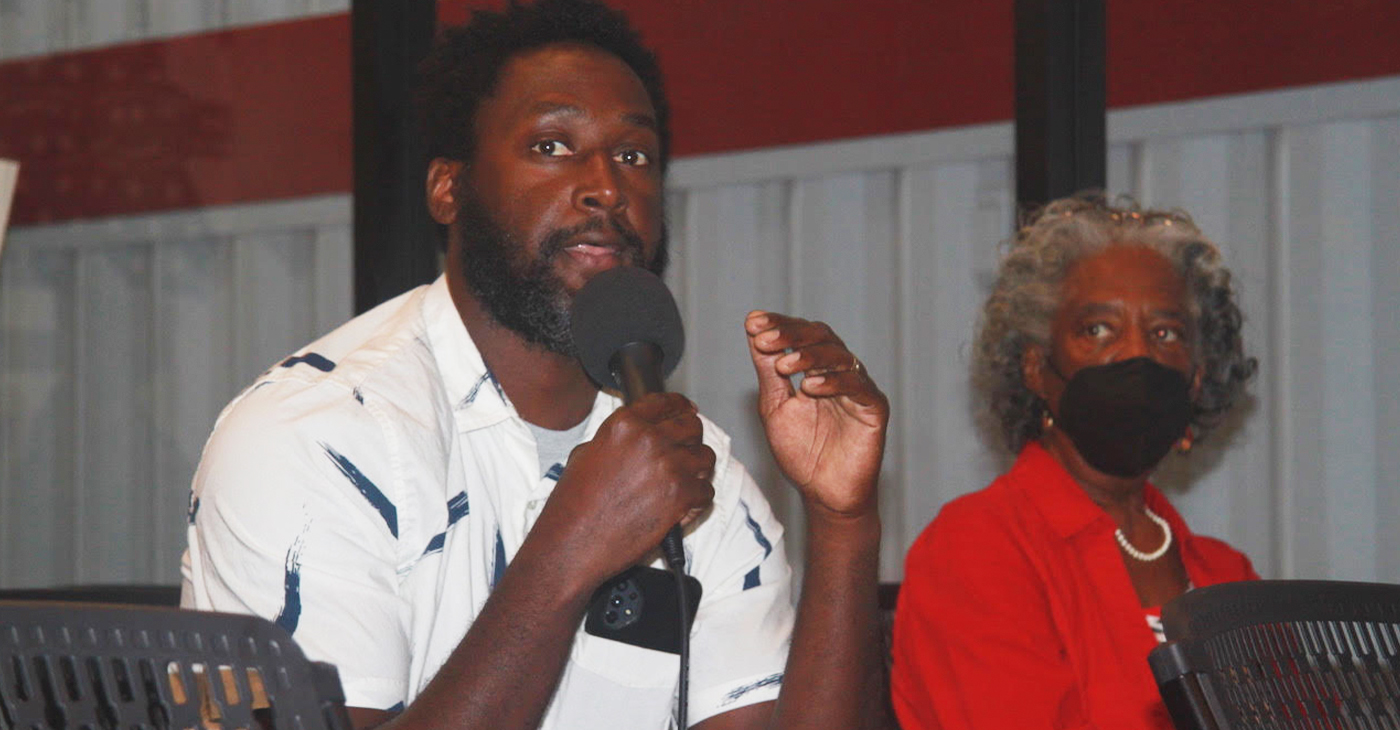
Antonio Ray Harvey | California Black Media
A series of community Listening Sessions are being held statewide to help the nine members of the California Task Force to Study and Develop Reparations Proposals for African Americans better understand how laws and policies that contribute to perpetuating the effects of slavery have negatively impacted Black Californians.
The most recent three gatherings authorized by the Task Force took place last month.
An online community session was conducted featuring panelists Friday Jones, Los Angeles Reparations Commission Vice Chair; Jan Williams, Downtown Crenshaw Board member; and University of California at Berkeley professor Dr. Jovan Scott Lewis.
“What (Reparations) must do is bring about this sense of recognition,” said Lewis, who is a member of the California Reparations Task Force.
“One of the things that the [Task Force] has accomplished so far over the past year is to bring about a sense of recognition for the Black American community in California and the country overall,” Lewis told the online audience.
The virtual webinar and Community Listening session was hosted by the Coalition for a Just and Equitable California (CJEC), the American Redress Coalition of California (ARCC), and Community Health Councils (CHC).
CJEC is a state-wide coalition of organizations, associations, and community members that support reparations for Black Californians who are descendants of enslaved Black American men and women. CHC is a Los Angeles-based nonprofit committed to practices advancing justice, equity, diversity, and inclusion to achieve sustainable policy and systemic change.
A sanctioned in-person community listening session was held in the city of Vallejo. It was hosted by CJEC with the support of the state’s Department of Justice (DOJ) and the Black Women Organized for Political Action (BWOPA).
The event was held at Black-owned LaDells Shoes in downtown Vallejo. Personal testimony of adversity and success rooted in the Black experience in and around Vallejo were shared during this session. Struggles with employment, decent housing, racism in public schools, homelessness, police brutality, and the challenges of maintaining a business were covered.
“In May we had our first community conversation about reparations [in Oakland, Calif.] and it was an overall history of reparations in the United States,” said Dr. Kerby Lynch, who recently received a doctorate in geography from the University of California Berkeley. “This session is about what reparations look like for Vallejo. We are here to listen to one another’s stories and record these testimonies.”
Vallejo is one of the cities in the state with a modest population of Black people who are fighting for recognition during the reparations proceeding. It does have an abundance of Black history to be shared.
Home of the former Mare Island Naval Shipyard, Vallejo is 32 miles north of San Francisco. The 2020 United States Census says the East Bay Area city had a population of 22,416 Black people (18.48%) out of a total of 121,275. Statewide Blacks are 5.4% of the population.
The third listening session hosted by CJEC was held in Sacramento. Task Force member and Bay Area attorney Don T. Tamaki participated virtually in the session that was held in Sacramento’s Oak Park neighborhood.
At the Sacramento listening session, the community testified about how to build small businesses, Black people’s “Great Migration” from the deep south to the west coast, how the Freedman’s Bureau model can be used to determine reparations, and Black pioneer’s presence during the Gold Rush.
The community listening sessions are being conducted across the state by the Reparations Task Force’s seven “anchor organizations.”
The seven, Afrikan Black Coalition, Black Equity Collective, Black Equity Initiative, California Black Power Network, Coalition for a Just and Equitable California, Othering and Belonging Institute (University of California Berkeley) and Repaired Nations began conducting community gatherings in March.
The listening sessions are designed to ensure certain communities around the state have the opportunity to provide their thoughts and concerns about the work the task force is doing.
On June 1, 2022, the Task Force issued a 483-page interim report to the California legislature. The report surveys the ongoing and compounding harms experienced by African Americans as a result of slavery and its lingering effects on American society today.
“It’s a sweeping indictment,” Tamaki said of the report during the Sacramento community listening session. “It connects the harms of the past and follows the consequences that we face today. There have to be legislative remedies.”
The interim report also includes a set of preliminary recommendations for policies that the California Legislature could adopt to remedy those harms. A final report will be issued before July 1, 2023.
The Task Force in-person meetings will reconvene in Los Angeles at the Paradise Baptist Church on Friday, Sept. 23, at 9:00 a.m. and Saturday, Sept. 24, 2022, at 9:00 a.m. The church is located at 5100 S. Broadway.
For updates and additional information visit Reparations Task Force Meetings.
Activism
Living His Legacy: The Late Oscar Wright’s “Village” Vows to Inherit Activist’s Commitment to Education
Kingmakers of Oakland (KOO), a nonprofit organization that works to improve educational and life outcomes for Black boys and men, stated that “Oscar Wright is one of the most prolific, consistent, and committed advocates of equity for Black students and Black Families here in Oakland for the past six decades.”
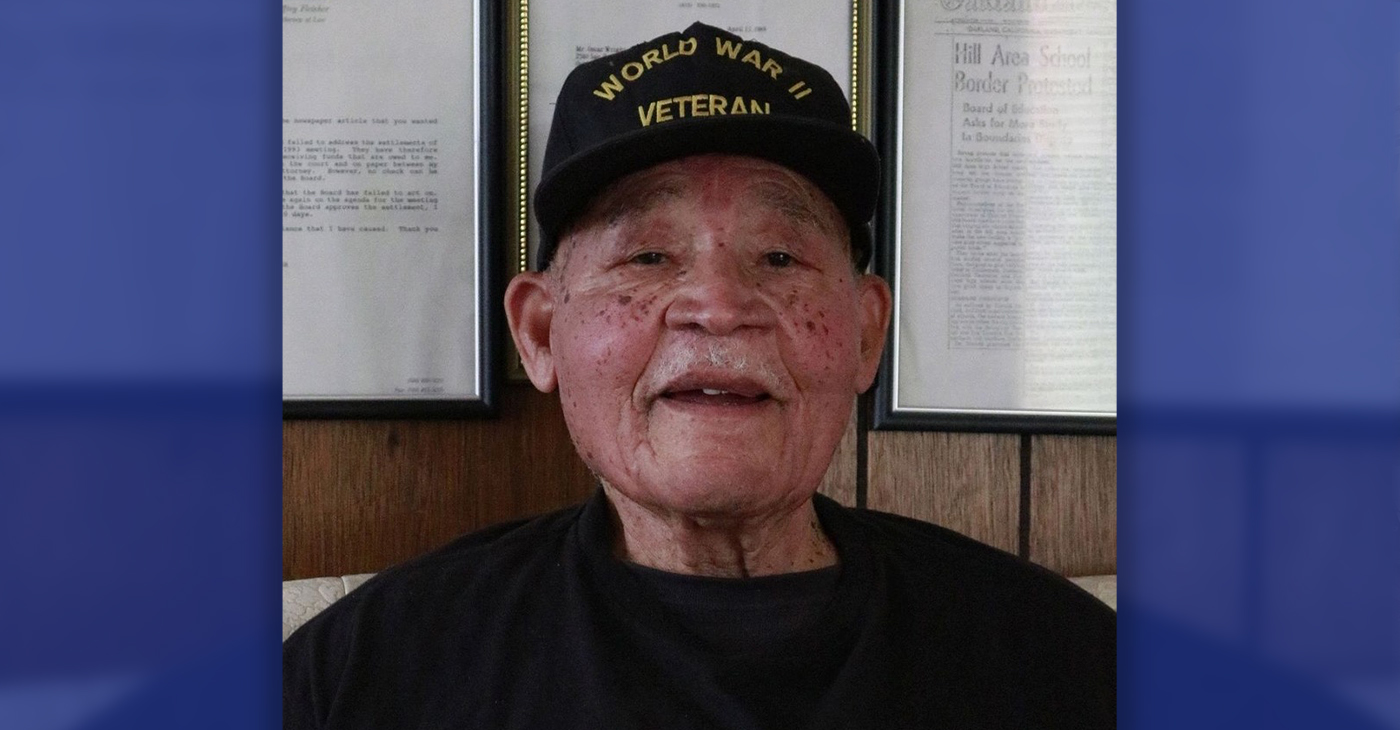
By Antonio Ray Harvey, California Black Media
Activists mourning Oscar Carl Wright’s death, have pledged to continue his lifelong mission of advocating for Black students and families in Northern California.
Wright, 101, who passed away on Nov. 18, was involved in Oakland’s educational affairs until his death.
Now, friends and admirers acknowledge that carrying on his legacy means doubling down on the unfinished work that Wright dedicated his life, time, and resources to, according to Y’Anad Burrell, a family friend and founder of San Francisco-based Glass House Communications (GHC).
“Mr. Wright did a lot of work around equity, specifically, for Black students based on their needs — whether it was tutoring, passing classes, or graduating,” Burrell said.
Wright became a champion for his children’s education, recognizing the disparities between their school experiences and his own upbringing in the Mississippi Delta.
Burrell told California Black Media (CBM) that the crisis of unequal access to resources and a quality education continues to affect the Oakland Unified School District (OUSD).
According to Oakland Reach, in the city of Oakland, only 3 in 10 Black and Brown students are reading at or above grade level. In addition, only 1 in 10 are doing math at or above grade level.
Oakland REACH is a parent-run, parent-led organization. It aims to empowers families from the most underserved communities to demand high-quality schools for their children.
Wright’s work as an activist had impact across the state but he was primarily known in the Bay Area. Alongside the Black United Front for Educational Reform (BUFER), he filed a complaint against OUSD for violating the Civil Rights Act of 1964.
In 2000, the OUSD school board proposed an action plan to address educational inequity, but it was never implemented.
Wright later founded the African American Honor Roll Celebration at Acts Full Gospel Church, an award that recognizes Black students with a grade point average of 3.0 or better. Each year, more than 1,000 students are honored at this ceremony.
Kingmakers of Oakland (KOO), a nonprofit organization that works to improve educational and life outcomes for Black boys and men, stated that “Oscar Wright is one of the most prolific, consistent, and committed advocates of equity for Black students and Black Families here in Oakland for the past six decades.”
Burrell said that one of the main reasons Wright’s work was so essential for families and children in Oakland that is the direct relationship between acquiring a quality education and affording quality housing, maintaining food security, achieving mental wellness, and securing stable employment.
Wright was the child of sharecroppers from Coahoma County, Mississippi. He attended Alcorn State University, a Historically Black College and University (HBCU).
In the late 1950s, Wright and his family relocated to the Bay Area where he worked as a contractor and civil engineer. He later became an active member of the National Association for the Advancement of Colored People (NAACP).
Burrell said the people who will carry on Wright’s work are part of a “village” that includes KOO’s CEO Chris Chatmon. Wright was a mentor to Chatmon.
“It will not be one entity, one person, or one organization that picks up the baton because it was a village effort that worked alongside Mr. Wright for all these years,” Burrell said.
Burell says that legacy will live on.
Activism
Protesters Gather in Oakland, Other City Halls, to Halt Encampment Sweeps
The coordinated protests on Tuesday in San Francisco, Oakland, Vallejo, Fresno, Los Angeles and Seattle, were hosted by Poor Magazine and Wood Street Commons, calling on cities to halt the sweeps and focus instead on building more housing.
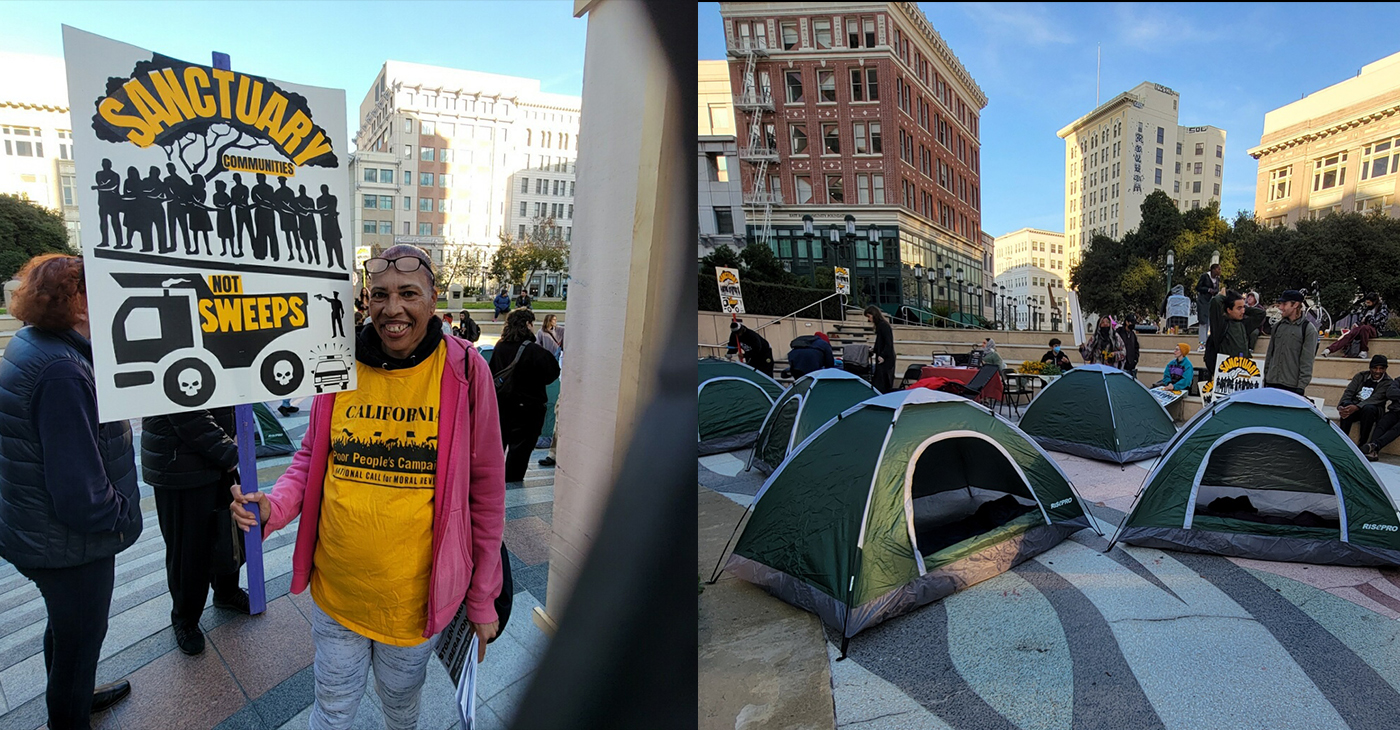
By Post Staff
Houseless rights advocates gathered in Oakland, San Francisco, Los Angeles, and other city halls across California and Washington state this week protesting increased sweeps that followed a U.S. Supreme Court decision over the summer.
The coordinated protests on Tuesday in San Francisco, Oakland, Vallejo, Fresno, Los Angeles and Seattle, were hosted by Poor Magazine and Wood Street Commons, calling on cities to halt the sweeps and focus instead on building more housing.
“What we’re dealing with right now is a way to criminalize people who are dealing with poverty, who are not able to afford rent,” said rights advocate Junebug Kealoh, outside San Francisco City Hall.
“When someone is constantly swept, they are just shuffled and things get taken — it’s hard to stay on top of anything,” said Kealoh.
Local houseless advocates include Victoria King, who is a member of the coordinating committee of the California Poor People’s Campaign. She and Dr. Monica Cross co-chair the Laney Poor People’s Campaign.
The demonstrations came after a June Supreme Court ruling expanded local governments’ authority to fine and jail people for sleeping outside, even if no shelter is available. Gov. Gavin Newsom in California followed up with an order directing state agencies to crack down on encampments and urging local governments to do the same.
Fresno, Berkeley and a host of other cities implemented new rules, making it easier for local governments to clear sidewalk camps. In other cities, such as San Francisco, officials more aggressively enforced anti-camping laws already on the books.
Activism
Celebrating East Bay Leaders Keith Carson and Federal Glover at Geoffrey’s Inner Circle
Several leaders were in attendance including fellow Alameda Supervisors Elisa Marquez and Lena Tam, Superior Court judge-elect Terry Wiley, and African American Sports and Entertainment Group’s founder Ray Bobbitt, along with many other guests.

By Magaly Muñoz
After decades of public service in the East Bay, community members and leaders came together to celebrate Alameda County Supervisor Keith Carson and Contra Costa Supervisor Federal Glover at Geoffrey’s Inner Circle Thursday afternoon.
Several leaders were in attendance including fellow Alameda Supervisors Elisa Marquez and Lena Tam, Superior Court judge-elect Terry Wiley, and African American Sports and Entertainment Group’s founder Ray Bobbitt, along with many other guests.
First elected in 1992, Carson has served District 5 for 24 years and announced his decision to step away from his seat earlier this year, just before the deadline to submit new candidate applications.
He dedicated his long career to bringing access to health care, addressing homelessness, lowering crime, improving business retention, and growing job opportunities in Alameda County.
Glover began his tenure as Contra Costa Supervisor in 2000 and previously served as mayor of Pittsburg in 1998. During his time as Supervisor, he supported initiatives on public transportation, created committees for public safety, and supported task forces on health.
“These two distinguished leaders have dedicated their lives to improving the lives of so many people across Alameda and Contra Costa (counties). Their work has touched every corner of the East Bay,” Alameda County Supervisor and President Nate Miley said.
Leaders from both counties spoke on the supervisors’ legacies and their dedicated years of service.
Contra Costa Supervisor John Gioia said that Glover was the type of person that grew with each challenge that crossed him, especially after he had major surgery in 2020. But Gioia said that the treatment did not deter Glover.
“He’s had tougher races for reelection than any member of our board that I can recall, and he’s always come back stronger than before,” Gioia said.
Sharing a county border, Gioia complimented Carson on his ability to sway leaders from both sides of the political aisle to listen on the issues affecting locals and residents across the nation.
Shannell Scales Preston, who is taking over Glover’s D5 seat in 2025, told event attendees that Glover was a mentor to her for many years. He often would call Preston after Pittsburg City Council meetings with remarks about her performance and how well she spoke up on certain issues.
With Glover spending years as the only Black elected official in local government, Preston would ask him how he managed to not feel lonely about the job. She then congratulated him on being the only supervisor in Contra Costa to have all Black mayors under his district in 2023.
Preston said he’s been a leader to many diverse groups and his tenure has seen leaders of all backgrounds, but particularly paving the way for Black leaders in predominantly white areas.
Miley, who has shared his entire 24-year tenure on the Alameda Board with Carson, tearfully wished the exiting supervisor luck and said he would miss him dearly.
Carson said that as we embark on a “dark time” for everyone across the nation and worldwide in 2025, it’s important to continue communicating and working with groups from all backgrounds because that is the only way things will get done.
“There have been many lonely nights, but then the sun comes out in the morning when you continue to think, ‘I can make a difference,’” Carson said.
-

 California Black Media4 weeks ago
California Black Media4 weeks agoCalifornia to Offer $43.7 Million in Federal Grants to Combat Hate Crimes
-

 Black History4 weeks ago
Black History4 weeks agoEmeline King: A Trailblazer in the Automotive Industry
-

 California Black Media4 weeks ago
California Black Media4 weeks agoGov. Newsom Goes to Washington to Advocate for California Priorities
-

 Activism4 weeks ago
Activism4 weeks agoOakland Post: Week of November 27 – December 3, 2024
-

 California Black Media4 weeks ago
California Black Media4 weeks agoCalifornia Department of Aging Offers Free Resources for Family Caregivers in November
-

 Activism2 weeks ago
Activism2 weeks agoButler, Lee Celebrate Passage of Bill to Honor Congresswoman Shirley Chisholm with Congressional Gold Medal
-

 Activism2 weeks ago
Activism2 weeks agoPost News Group to Host Second Town Hall on Racism, Hate Crimes
-

 Activism2 weeks ago
Activism2 weeks agoDelta Sigma Theta Alumnae Chapters Host World AIDS Day Event













